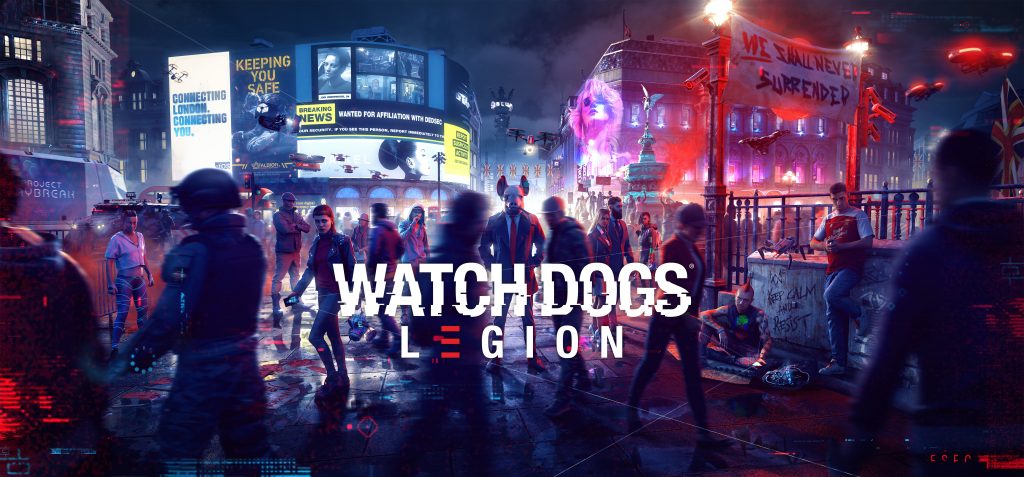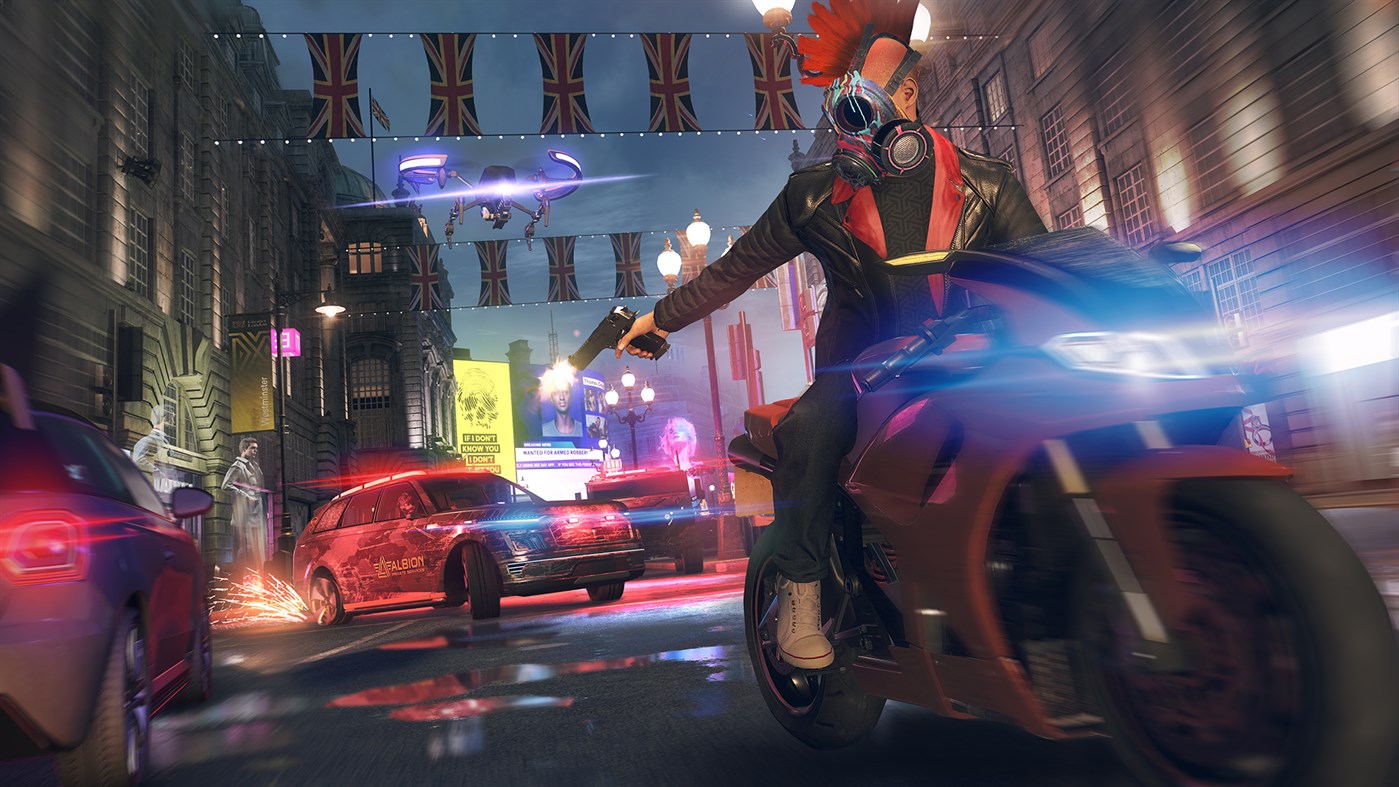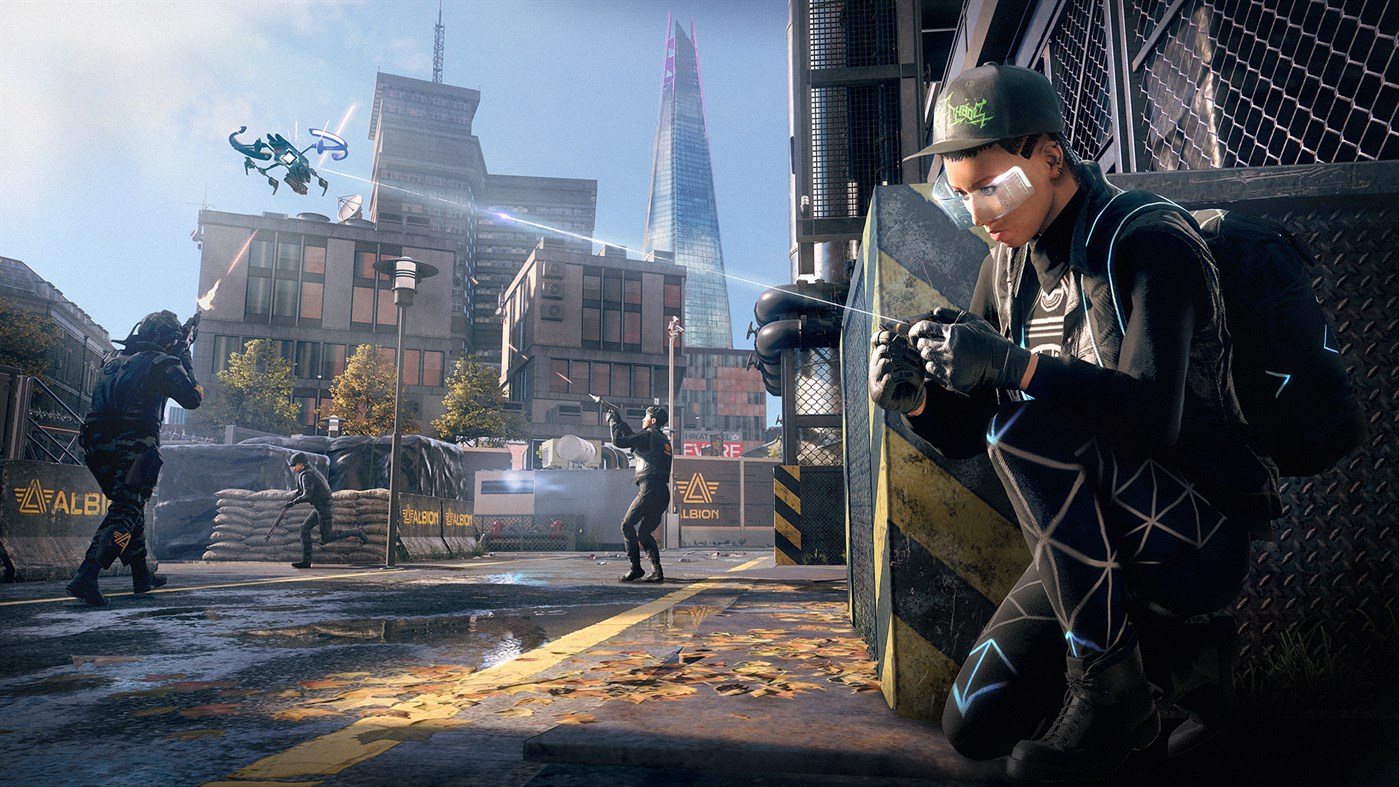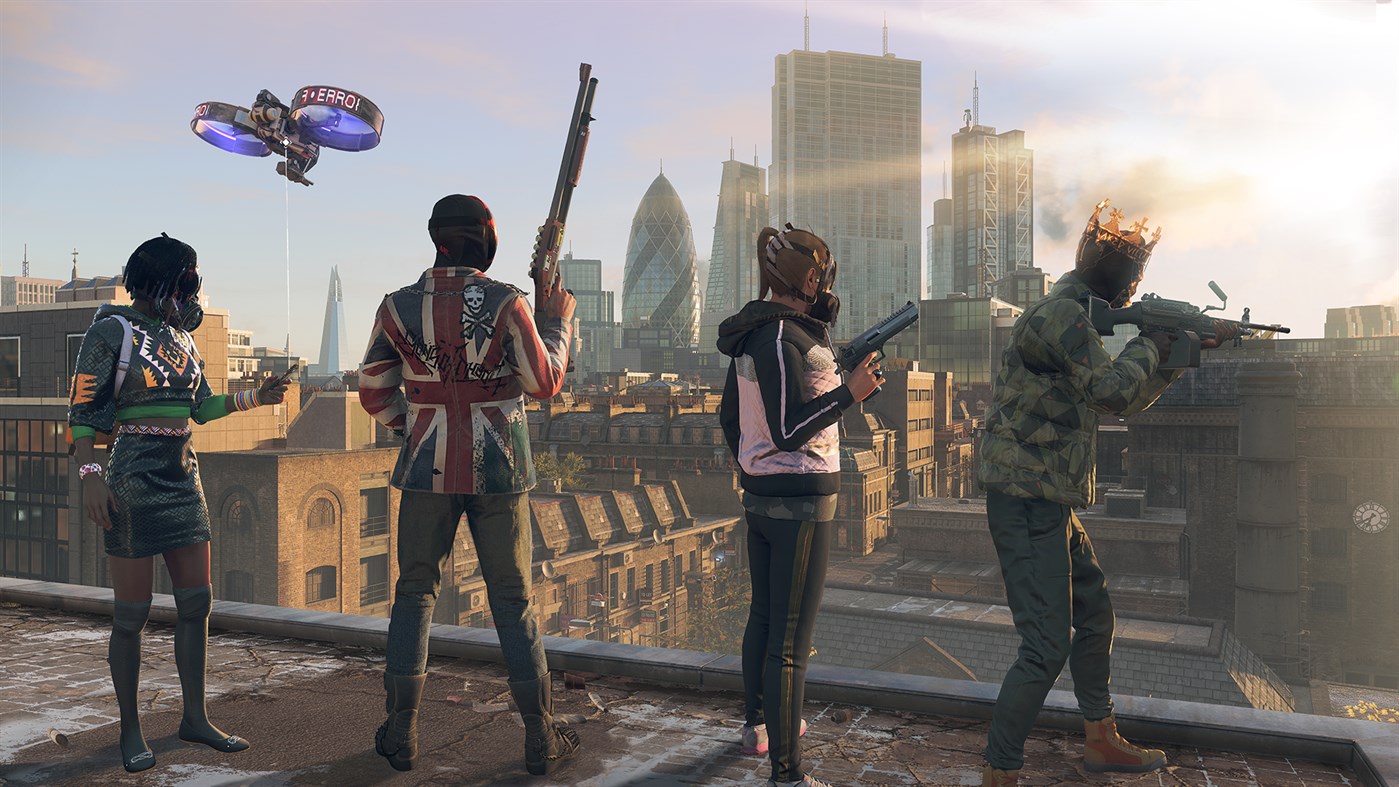Of all Ubisoft’s flagship IP, Watch Dogs seems to have had the most trouble finding it’s identity. The original promised the world in terms of next-gen visuals and dynamic gameplay and under-delivered on both fronts, the sequel arrived with a far more agreeable dose of personality and humour but still struggled under the dissonance of playing as a young San Francisco tech geek who slaughters hundreds of people.
Watch Dogs Legion, a game about the people rising up and resisting the powers that be in a near-future London overtaken by a fascist private military company, has a lot to prove releasing in a year like 2020. Certainly more than Ubisoft Toronto would ever have planned for. What might’ve otherwise been a somewhat bold exploration of what-could-be instead arrives feeling a little… vapid in light of the Black Lives Matter protests that erupted in the United States and around the world following the death of George Floyd at the hands of police on May 26th, 2020. Seeing a militarised police force brutalising unarmed civilians in a video game has, I must admit, lost the impact it might once have had.
From here on out I’ll leave the socio-political commentary to the professionals (do yourself a favour and read Austin Walker’s effortlessly eloquent review), what follows are my thoughts on whether Watch Dogs Legion is a video game worth checking out.
Dedsec, the underground group of hacktivists who played a central role in the first two games, has been framed for a series of explosions across London that levelled famous landmarks and killed a lot of people. The ploy is used as a false flag operation allowing Albion, the aforementioned fascist PMC, to come in and begin their takeover of London’s streets. You play as, well, anyone you like really. Any random NPC is recruitable off the street, each with their own appearance, abilities and weapons.
Herein lies the core feature of Watch Dogs Legion and while it’s certainly an ambitious one it comes at far too high a cost to the narrative. Without a central character, firmly placed in this moment in time in London, with motivations, fears and a backstory, it was extremely difficult to care about anything that was happening from beginning to end. There was a kind of fondness that built over the time I spent with my handpicked team of randoms, but it just sort of happened by accident as I gravitated toward the operatives with the most overpowered abilities.
Fundamentally Watch Dogs Legion is an open-world, third-person shooter with that Ubisoft stank all over it. The one addition to the formula is the ability to hack things: doors, cars, drones, phones. You can engage enemies in close quarters with fists or a variety of melee weapons, or through stock-standard cover-based shooting. There’s also stealth: staying out of sight of guards, sneaking up behind them to take them out, hacking spider-bots and drones to get into secure areas etc. All of these bread and butter elements are fine. They function. They’re also not especially fun.
Driving the streets of London is a dull way to get from A to B, there are no dynamic events to stumble across, no incentives to stop and smell the roses. Shooting feels splashy and lacks impact. Stealth is shallow and unnecessary.
The story taken on its own is already nothing special, but when you add to the generic narrative the complete lack of any real, fleshed-out characters it becomes utterly forgettable. The standout character is your AI advisor Bagley and that’s largely because you’ll be listening to him prattle on for 90% of the game. I sort of cared in a very basic “these bad guys are quite bad, let’s put a stop to them” kind of way, but for a game with such pertinent themes to the real world today it completely fails to engage.
The world is scattered with audio logs and text files that, again, feel inconsequential. Exposition is mostly delivered by radio which means your character will just awkwardly stand around in the top-secret, high-security base they just infiltrated while they wait for the supporting cast to stop chatting about the next story beat.
There were one or two main story missions that managed to be genuinely interesting, delving into some sci-fi themes (AI consciousness, drone policing, organ farming) that bordered on straight-up horror, but they are few and far between.
The city of London is split into boroughs and you reduce Albion’s influence by completing various missions within each of these boroughs: sneak in and snap a photo of some damning evidence, rescue an imprisoned whistleblower etc. Once you’ve completed three of these activities you unlock a new mission that culminates in the people rising up and kicking Albion out. The capstone mission in each borough is unique, which is something, but there is again not a huge incentive to do this. All it amounts to in a practical sense is ticking off a checkbox, and unlocking a slightly better than usual operative (that I never had a reason to use).
Returning for a moment to my team of operatives, the first of these chosen few was a construction worker who had access to a cargo drone, a big ol’ drone that you can climb on top of and basically fly anywhere. This made it extraordinarily easy, boring even, to infiltrate most places. The second was a disillusioned member of Albion who, thanks to her uniform, could walk into, again, most places, and as long she didn’t sprint right up to a guard, could pass unnoticed.
Outside of their voice actor, they just have no personality, nothing to endear you towards them. They’re just placeholders for their abilities and/or weapons. The first character I picked as part of the opening mission had the exact same voice actor as the aforementioned construction worker I recruited a few missions later.
Pre-release footage of the game showed a lot more complexity with regards to the recruit anyone system. Operatives had more nuanced and quirky traits, as well as individual levels. This has all been pared back in the final release. One could speculate as to why but it would ultimately be guesswork, what is certain is that the end result is decidedly less ambitious than what was first suggested, and it impacts the entire game from top to bottom.
There is undoubtedly an element of “you get out what you put in” to Watch Dogs Legion. If you actively go looking for quirky characters and decide to cater your team a certain way there’s enough here that you can have fun doing that. The issue is there’s absolutely zero need to.
Say I needed to get into a hospital. I could’ve stopped everything, gone and recruited someone with a medical uniform so I could infiltrate unnoticed, or I could just use the cargo drone I got access to in the first couple of missions, fly up to the roof and shoot anyone who gets in my way. Legion provides plenty of options, but it hasn’t been designed in a way that really encourages you to explore any of them.
At the end of the day, Watch Dogs Legion is more of the same from Ubisoft in a slightly less than common open-world setting, with an underutilised and essentially unimportant central mechanic all coated in an extremely shallow “fight the power” and “we’re stronger together” veneer. The game functions well enough as yet another city-based, third-person, open-world shooter and there are plenty of toys and systems to play with if so inclined, but there’s just so little that stands out here. Watch Dogs 2 was a step in the right direction, Legion is a firm step backwards, getting its feet tangled in ambitious systems that are never really given a chance to shine. It’s a game that is clearly striving to be something different, a unique take on the open-world genre. Instead, it ended up being the most forgettable game I’ve played all year.
Rating: 6/10
Watch Dogs Legion was reviewed on PC with a code provided by Ubisoft.




